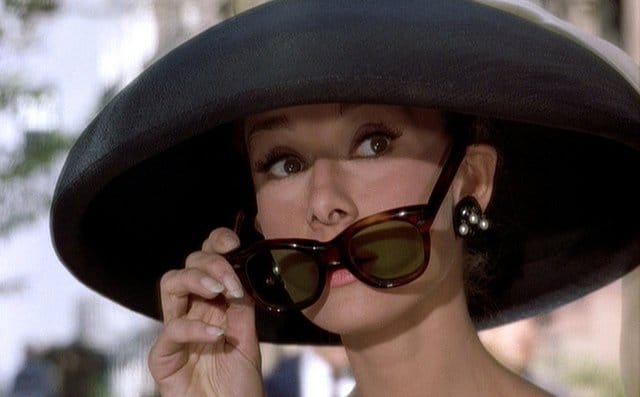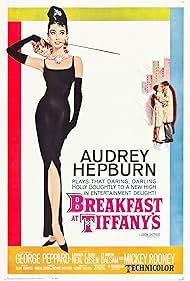A movie for every day of the year – a good one
18 September
Tiffany and Co founded, 1837
On this day in 1837, Charles Lewis Tiffany and his partner Teddy Young opened a fancy goods and stationery shop in Lower Manhattan. Tiffany, Young and Lewis changed its name to Tiffany & Co when Charles Tiffany took sole control in 1853. At the same time he shifted its emphasis to jewellery. Growing fat on the revenue from its mail order operation, Tiffany also started to get a name as a provider of quality items – silverware, surgical instruments and swords. By the 1880s it had become closely associated with diamonds after buying the French crown jewels (no longer required in France since the country no longer had a monarch). Through the 20th century, Tiffany’s became a byword for opulence – Marilyn Monroe sings its name in Diamonds Are a Girl’s Best Friend in the 1953 movie Gentlemen Prefer Blondes; James Bond’s love interest in the 1956 Ian Fleming novel Diamonds Are Forever is named Tiffany Case. So when Truman Capote wrote a novella in 1958 about a New York socialite called Holly Golightly who wanted the best of everything, the name Breakfast at Tiffany’s seemed entirely appropriate.
Breakfast at Tiffany’s (1961, dir: Blake Edwards)
The film that made Audrey Hepburn in her little black dress, string of pearls and cigarette holder, an enduring icon, is actually a story about a woman not a million miles away in modus operandi from Truman Capote’s mother. Not a prostitute, exactly, more a good time girl from a good family who is using her extended sojourn in New York as a way of catching a rich husband. An “American geisha” as Capote put it in a 1968 Playboy interview. Not that there’s any hint of impropriety in Hepburn’s performance. Nor does George Peppard exhibit any of the characteristics that seemed to mark him out as a gay gigolo in Capote’s original story. In fact Peppard’s character has been so rinsed through that he has become pretty dull. But Breakfast at Tiffany’s, like a lot of Blake Edwards films of the 1960s, is at least as much an exercise in style as it is in plot – which is presumably why when it debuted critics almost unanimously didn’t dwell on the selling oneself for cash, child sex (Holly’s husband reveals she was 13 when they married), drugs, unwanted pregnancy and relentless deception. Nowadays we’d add appalling racial stereotyping (Mickey Rooney’s bucktoothed Japanese) and smoking (that cigarette holder) to its list of crimes. Though no one then or now really seems too concerned by any of those things, possibly because the entire film takes place in a milieu that’s a collision between Hollywood make-believe and Hepburn high style.
Why Watch?
- Catch a glimpse of Mel Blanc – the voice of Bugs Bunny
- The film that set Hepburn’s screen persona in stone
- The iconic “little black dress” movie
- The Henry Mancini/Johnny Mercer song Moon River, written specifically for Hepburn
Breakfast at Tiffany’s – at Amazon
I am an Amazon affiliate
© Steve Morrissey 2013

